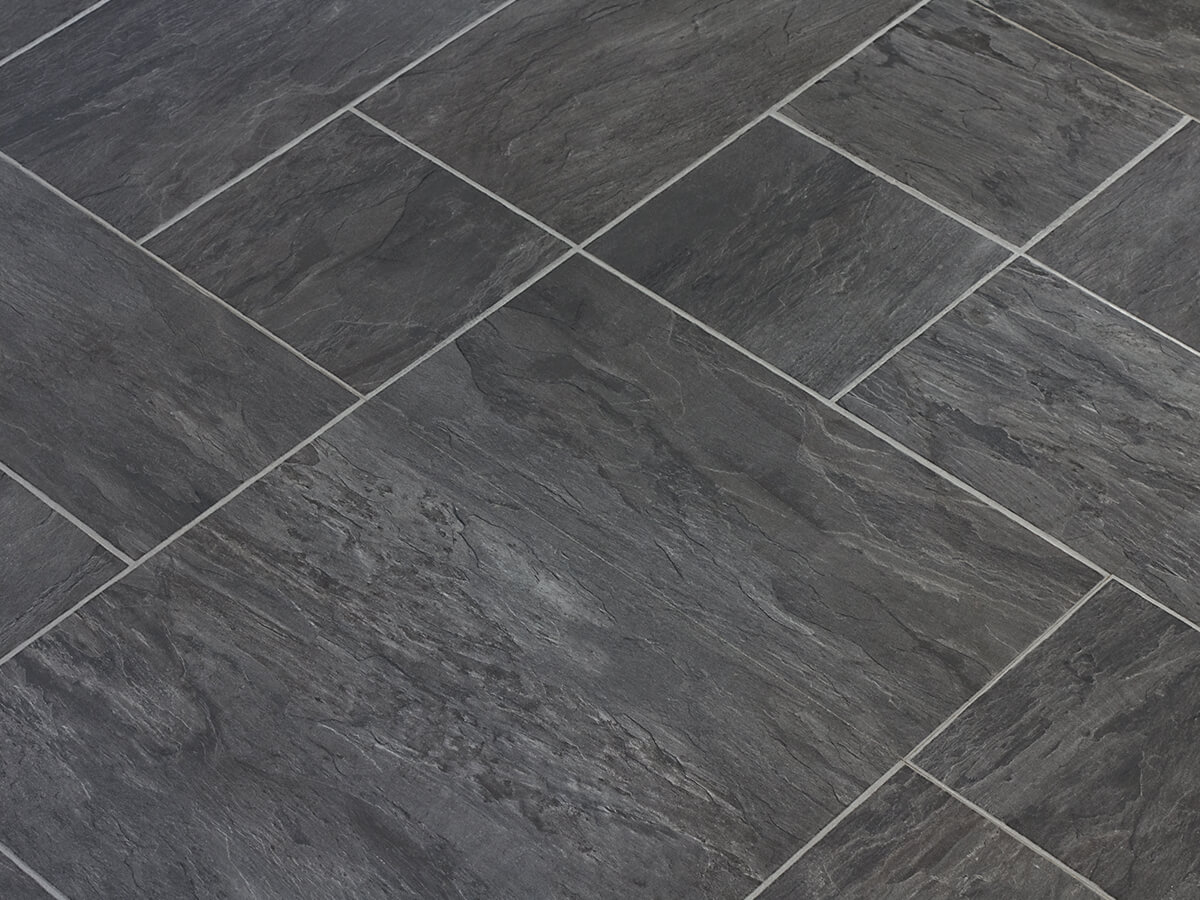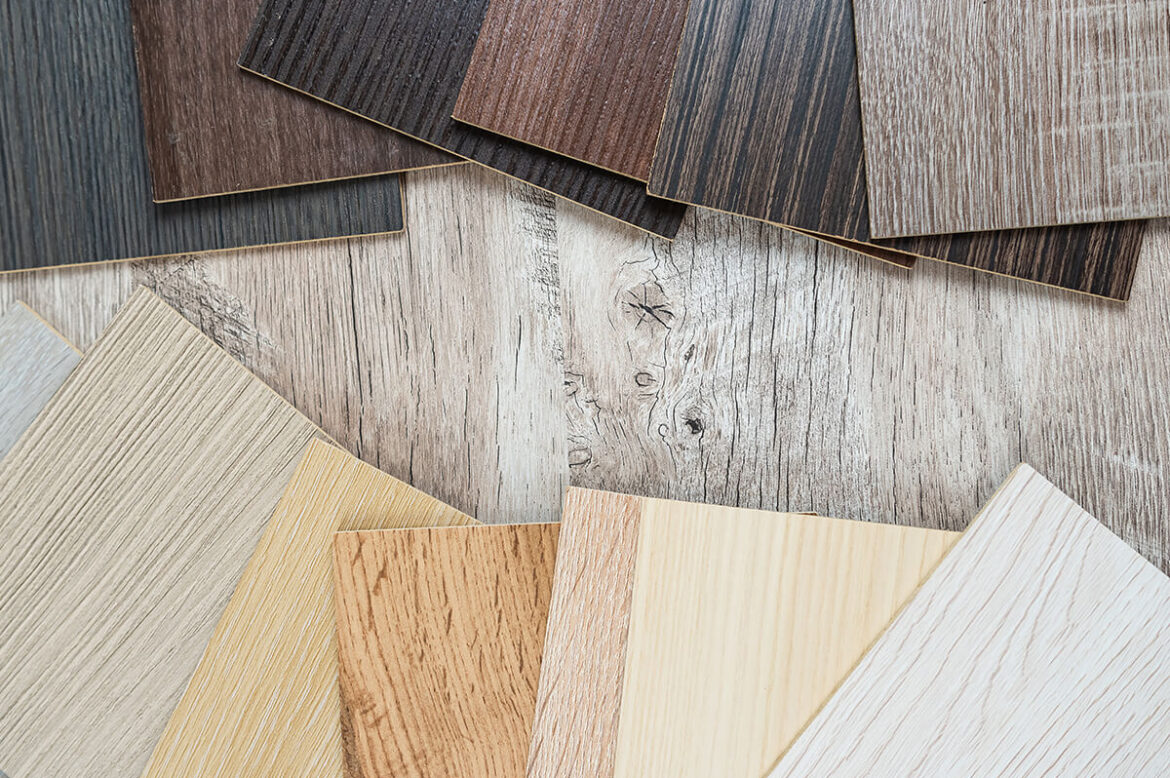Vinyl flooring has come a long way, transforming into a stylish, durable, and affordable choice for homes and businesses alike. However, several myths still cloud its reputation, leaving many homeowners hesitant to consider it. Let’s tackle the most common myths about vinyl flooring, separating fact from fiction to help you make an informed decision.
Myth 1: Vinyl Flooring is Cheap and Low-Quality
One of the most persistent misconceptions about vinyl flooring is that it’s synonymous with low quality. This myth likely stems from its early days when vinyl was primarily seen as a budget option with limited design choices. However, today’s vinyl flooring has undergone a complete transformation, offering high-quality products that rival more expensive materials.
Modern Vinyl: A Blend of Style and Durability
Modern vinyl options, such as luxury vinyl planks (LVP) and luxury vinyl tiles (LVT), are built to last. These products are created with advanced technology that enhances durability and creates realistic textures and designs.
For instance, vinyl flooring can now mimic the look of hardwood so convincingly that it’s difficult to tell the difference without close inspection.
Myth 2: Vinyl Flooring is Harmful to the Environment
Many people believe that vinyl flooring has a negative impact on the environment due to its synthetic composition and manufacturing process. While it’s true that traditional vinyl flooring raised concerns in the past, modern innovations have significantly improved its sustainability.
Eco-Friendly Advancements in Vinyl Flooring
Today’s vinyl flooring options include eco-luxury vinyl plank (eLVP) flooring, which uses recycled High-Density Polyethylene (rHDPE) instead of PVC. According to a study, this approach not only addresses global environmental and health issues but also lowers production costs (Nhari, et al, 2023).
This makes eLVP a sustainable and affordable option for homeowners seeking environmentally friendly solutions.
Comparing Vinyl’s Environmental Impact
When compared to other flooring options, vinyl’s environmental footprint is often on par or even lower. Many manufacturers have adopted practices to reduce waste and improve recyclability. Additionally, the long lifespan of vinyl flooring helps reduce the need for frequent replacements, minimizing overall material consumption.
Myth 3: Vinyl Flooring is Difficult to Maintain
A common myth is that vinyl flooring requires excessive effort to keep clean and looking good. This belief might stem from outdated experiences with older flooring materials that demanded specialized care. However, modern vinyl flooring is designed with convenience in mind, making it one of the easiest flooring options to maintain.
Effortless Cleaning Routine

Vinyl flooring’s smooth, non-porous surface resists dirt and stains, making daily cleaning a breeze. All it takes is regular sweeping or vacuuming to remove dust and debris, and occasional mopping with a damp cloth or mild detergent to keep it spotless. Unlike some flooring materials, vinyl doesn’t require waxing, polishing, or harsh chemical cleaners, saving both time and effort.
Resistance to Common Wear and Tear
Modern vinyl flooring is built to withstand scratches, spills, and stains, which means less worry about damage during everyday use. Its protective top layer acts as a shield, ensuring that even in high-traffic areas, the flooring retains its appearance with minimal upkeep.
Myth 4: Vinyl Flooring Can’t Handle Moisture
Some homeowners mistakenly believe that vinyl flooring is prone to damage from water exposure, assuming it performs similarly to other materials like hardwood or laminate. This outdated notion overlooks the advancements that have made modern vinyl flooring highly water-resistant and even waterproof.
Designed to Resist Water
Vinyl flooring, particularly luxury vinyl planks (LVP) and luxury vinyl tiles (LVT), is engineered to withstand moisture effectively. Its construction includes layers that repel water, preventing warping, swelling, or staining. Waterproof vinyl flooring takes this a step further, making it an excellent choice for rooms like bathrooms, kitchens, laundry rooms, and basements.
Myth 5: Vinyl Flooring Doesn’t Last Long
Many believe that vinyl flooring has a short lifespan and needs frequent replacement. This misconception may stem from the earlier versions of vinyl, which lacked the advanced materials and technologies used today. Modern vinyl flooring, however, is a durable and long-lasting option that can easily stand the test of time.
Built for Everyday Wear and Tear
Many vinyl flooring products are scratch-resistant, stain-resistant, and waterproof, making them an excellent choice for high-traffic areas or homes with kids and pets. Some brands even offer warranties of up to 20 years, proving their confidence in the quality and longevity of their products.
A Cost-Effective Investment
Not only does vinyl flooring last long, but it also offers excellent value for money. Its durability reduces the need for costly repairs or replacements, making it a smart investment for homeowners and businesses alike. Additionally, its resistance to water and stains further extends its lifespan in busy or high-moisture areas.
Myth 6: Vinyl Flooring Looks Artificial
One of the most common myths about vinyl flooring is that it has a fake, plastic look that detracts from a home’s design. This belief likely comes from the early days of vinyl, when options were limited to plain patterns and basic designs. However, vinyl flooring today offers a vast array of stunning visuals that rival natural materials like wood, stone, and ceramic tiles.
High-Quality Designs That Mimic Nature

Advancements in printing technology and embossing techniques have allowed vinyl flooring to closely replicate the look and texture of real hardwood. Luxury vinyl planks (LVP) and luxury vinyl tiles (LVT) feature realistic grains, textures, and colour variations, providing the elegance of natural materials without the high cost or maintenance.
Versatile Styles for Every Taste
Manufacturers now offer a wide range of patterns, colours, and finishes, making it easier than ever to find the perfect look for any room. Vinyl flooring can even mimic more expensive options like reclaimed wood, offering rustic charm at a fraction of the price.
Myth 7: Vinyl Flooring is Outdated
Some still perceive vinyl flooring as an outdated choice, associating it with old-fashioned patterns and lower-quality materials. However, this misconception ignores the modern advancements that have transformed vinyl into a stylish and versatile flooring option.
Vinyl’s Modern Comeback
With cutting-edge manufacturing techniques, today’s luxury vinyl planks (LVP) and luxury vinyl tiles (LVT) offer designs that mimic natural hardwood with stunning realism. In fact, the look of high-quality vinyl flooring (to the untrained eye) is now comparable to your neighbour’s Mercier flooring in Toronto, making it a desirable option for those seeking both beauty and practicality.
Myth 8: Vinyl Flooring is Unsafe for Indoor Air Quality
This myth stems from earlier versions of vinyl flooring, which sometimes contained volatile organic compounds (VOCs) that could release harmful fumes into the air. While this was a legitimate concern in the past, modern advancements in manufacturing have addressed these issues, making vinyl flooring a safe and healthy option for homes and businesses.
Low-VOC and Non-Toxic Options
Many modern vinyl flooring products are designed to meet stringent safety standards, with low-VOC or no-VOC certifications. For example, luxury vinyl planks (LVP) and tiles (LVT) often comply with indoor air quality certifications like FloorScore® or GREENGUARD®.
These certifications ensure that the flooring emits minimal VOCs, contributing to a healthier indoor environment.
Safe for Families and Pets
High-quality vinyl flooring is now made with non-toxic materials that are safe for everyone in the household, including children and pets. Manufacturers prioritize health-conscious practices, ensuring their products are free from harmful substances like phthalates or formaldehyde in compliance with global safety regulations.
Tips for Choosing the Right Vinyl Flooring
Consider where the vinyl flooring will be installed. For high-moisture areas like bathrooms and kitchens, opt for waterproof vinyl flooring. In high-traffic areas, such as hallways or living rooms, look for thicker planks or tiles with a durable wear layer to withstand daily wear and tear.
- Look for Certified Products
Ensure the vinyl flooring you choose meets indoor air quality standards. Look for certifications to confirm the product emits low or no volatile organic compounds (VOCs), making it a safer option for your home.
- Compare Design Options
Vinyl flooring comes in a wide variety of designs, textures, and finishes. Take time to compare samples in different lighting conditions to ensure the colour and texture suit your space.
- Check the Wear Layer
The wear layer is a critical factor in determining vinyl flooring’s durability. For residential use, aim for a wear layer thickness of at least 12 mils, but for areas with heavy foot traffic, consider 20 mils or more. A thicker wear layer ensures the floor will stay scratch-resistant and maintain its appearance over time.
- Consider Installation Methods
Vinyl flooring offers different installation options, such as click-and-lock, glue-down, or peel-and-stick. Choose a method that suits your preference. Click-and-lock systems are good for quick, user-friendly projects, while glue-down options are ideal for long-term installations.
- Set a Budget
Vinyl flooring is available at various price points, from budget-friendly options to premium luxury planks. While affordability is a key benefit of vinyl, consider balancing cost with quality to ensure you get a durable product that meets your needs.
- Read Reviews and Consult Professionals
Before purchasing, read customer reviews and seek advice from flooring professionals. Their expertise can help you select a product that aligns with your requirements, ensuring you make an informed decision.
Transform Your Space with Modern Vinyl Flooring
Vinyl flooring has come a long way, proving its value as a stylish, durable, and practical choice for any home or business. From debunking common myths to exploring its many benefits, it’s clear that modern vinyl flooring in Toronto offers both beauty and functionality.
Ready to upgrade your floors? Contact Capital Hardwood Flooring at (416) 536-2200 for expert advice and premium flooring solutions. Let us help you find the perfect vinyl flooring for your space!
